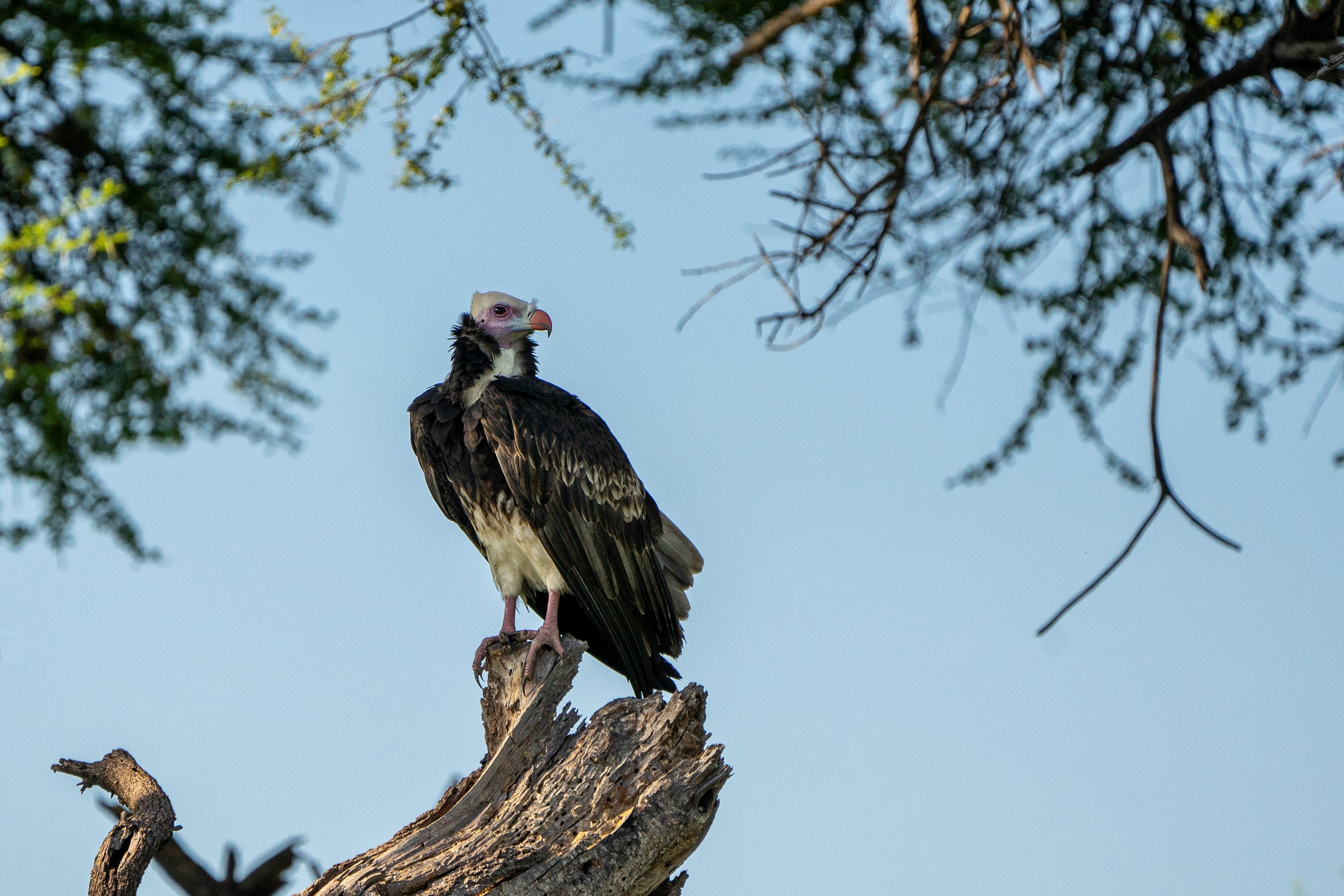Vulture ‘restaurants’ help protect dwindling raptor populations in Zimbabwe
Vulture populations across the continent are declining due to poisoning and habitat loss

By Mary Mundeya for The NewsHawks
It is a scorching hot Thursday afternoon and a group of ecstatic primary school students accompanied by their teacher are following Zulu.
He is one of two wildlife officers at the Victoria Falls Safari Lodge in the northern Zimbabwean town of Victoria Falls, in charge of the organisation’s Vulture Restaurant initiative.
Over the years, vulture populations in Africa have declined drastically due to a number of factors, including poisoning and traditional use of vulture body parts as medicine. According to Birdlife International, vultures have become one of the most threatened families of birds on theplanet.
Zimbabwe is home to six of the 11 main vulture species found on the African continent, all of which are either endangered or critically endangered, according to the World Conservation Union (IUCN) list.
Against this backdrop, the Vulture Restaurant initiative, in which vultures are fed leftover animal carcasses, is being adopted by numerous wildlife sanctuaries, hotels and lodges as an innovative way of protecting the dwindling vulture population.
The initiative is not only limited to the provision of food for the birds, it has grown to become an educational programme through which local and international tourists are taught about the threats vultures face and the importance of the birds of prey to the ecosystem.
“One of the major reasons for vultures being endangered is that their food supply is under threat due to increased poaching activities, where poison is being used to kill large animals like elephants,” says Musanza. “If the birds consume the carcass of the poisoned animal, they die in huge numbers, thus our supplementary feeding programme provides them with a safe food source.”
“Each day at 1pm, visitors to the lodge are invited to walk a short distance to the game park at the front of our lodge, where a guide drops some meat so that the vultures can descend and eat,” said Anarld Musonza, the Victoria Falls Safari Lodge general manager. “Whilst the visitors are looking at the spectacle of the feeding birds, our senior wildlife officer Aleck Zulu sharpens their understanding of the importance of vultures not only to the wild but to us as humans and our survival in harmony with nature.”
Shangani Wildlife Sanctuary (SWS), which is home to another successful Vulture Restaurant initiative, feeds the birds with offcuts from a nearby abattoir as well as wildlife carcasses.
“The restaurant has been a very successful platform to educate, not only international tourists but also local villagers, mostly school children, on the importance of vultures and build support for their conservation efforts,” said the SWS spokesperson.
“Not only are we happy with the numbers of visitors we receive per day, we are also delighted with the increase in vulture numbers that have been coming to feed on a daily basis which has risen from approximately 200 to 350 since we started.”
Wildlife ACT Emergency Response manager PJ Roberts referred to vultures as a keystone species which acts as the environment’s clean-up crew.
“Vultures play an essential role in maintaining a healthy ecosystem,” he said. “These critically endangered birds provide an incredible ‘clean-up’ service for the environment. By eating decomposing animals from the landscape, we are guaranteed of an environment free from diseases such as anthrax, rabies, tuberculosis and botulism which, if allowed to spread, have catastrophic effects on both humans and animals.”
Birdlife Zimbabwe’s chief executive officer Julia Pierini concurred with Roberts’ sentiments. She cited the example of how India’s rabies epidemic gained momentum after the country’s vulture population dwindled.
“Since the 1990s India has been battling with rabies, and thousands of people die from the disease every year. Going that route would be catastrophic for our nation,’’ she said.
Pierini also paid tribute to every organisation contributing towards vulture conservation through the Vulture Restaurant initiative.
“As Birdlife Zimbabwe we are grateful towards every organisation that is contributing towards vulture conservation in the country. Apart from the birds’ immeasurable contribution to the cleanliness of our environment, they also play a critical role in alerting wildlife rangers on locations of poached animals through how they circle in the sky above dead carcasses.’’
“Vultures have a slow gestation period so it’s also important that we take care of their nests, eggs and young ones as the human population is rapidly encroaching further into wildlife habitats,’’ Pierini said.
This article is reproduced here as part of the African Conservation Journalism Programme, funded in Angola, Botswana, Mozambique, and Zimbabwe by USAID’s VukaNow: Activity. Implemented by the international conservation organisation Space for Giants, it aims to expand the reach of conservation and environmental journalism in Africa, and bring more African voices into the international conservation debate. Read the original story here:
Join our commenting forum
Join thought-provoking conversations, follow other Independent readers and see their replies
Comments
Bookmark popover
Removed from bookmarks